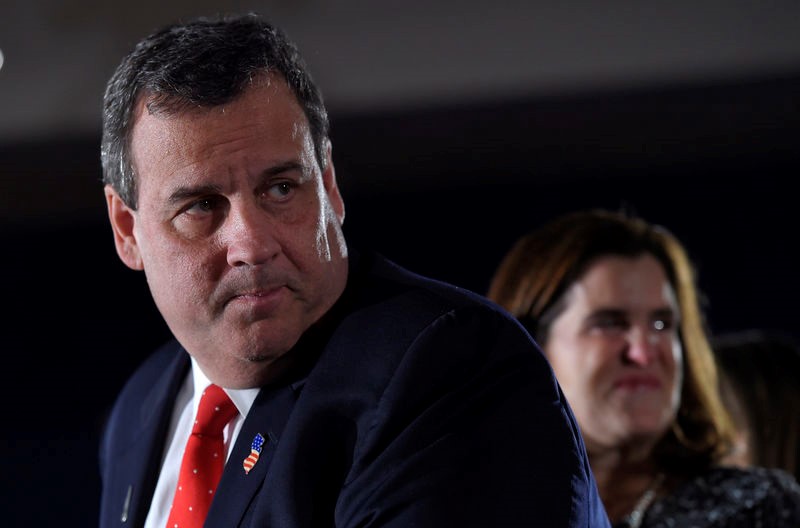By Hilary Russ
TRENTON, N.J. (Reuters) - New Jersey Governor Chris Christie proposed a $34.8 billion fiscal 2017 state budget on Tuesday that relies on a modest 3.1 percent revenue growth and no tax hikes.
It was Christie's first major address to New Jerseyans since he returned home after ending his run for the 2016 Republican presidential nomination last week.
He thanked residents for that "great privilege."
"While the result was not what I had hoped for, and maybe some of you too, the experience has made me a better governor, a better American and it's made me a better person," he said.
Christie spent more than half of 2015 out of state, much of it campaigning, and in a Rutgers-Eagleton Poll on Tuesday just 29 percent of registered New Jersey voters had a favorable opinion of him, his lowest level yet.
Gone from Christie's address was the broad national tone that dominated so many of his recent speeches. Instead he spoke, albeit briefly, about the need to fund transportation projects, a key state issue.
Christie's spending plan, which he said was built on "fiscal restraint," included $250 million in savings from yet-to-come cost reductions in health benefits for public employees.
The cost cuts could come through required use of generic drugs and increased co-pays, examples from a Treasury briefing for reporters before Christie's address to lawmakers in the statehouse.
Christie's budget could find favor with Wall Street credit rating agencies. Since he took office in January 2010, New Jersey has been hit with nine downgrades in part because of overly optimistic revenue projections and the use of non-recurring revenue sources.
The governor's latest spending plan addressed both issues, with estimated revenue growth of just 3.1 percent. The proposed plan overall is just 2.2 percent larger than the $34 billion of appropriations for fiscal 2016, which ends on June 30.
It also slashes reliance on one-shot revenues, to 0.7 percent of the total budget from 2.9 percent this fiscal year.
The state's underfunded public pension system is another sore spot for rating agencies. The governor proposed a $1.86 billion contribution in 2017, the biggest amount ever for New Jersey, but still less than half of what the state should be contributing to keep the system healthy, according to actuaries.

Democrats, who control the legislature, said Christie skirted real proposals for healthcare savings or transportation funding, which they have said could be paid for with a state gasoline tax hike.